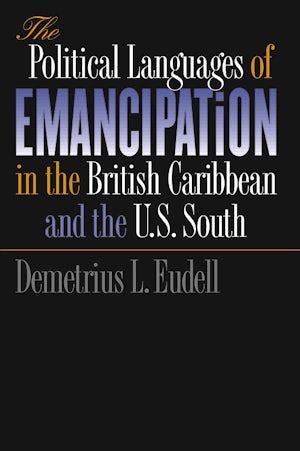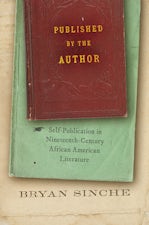The Political Languages of Emancipation in the British Caribbean and the U.S. South
By Demetrius L. Eudell
248 pp., 6 x 9, notes, bibl., index
-
Paperback ISBN: 978-0-8078-5345-0
Published: March 2002 -
E-book EPUB ISBN: 978-0-8078-6012-0
Published: April 2003 -
E-book PDF ISBN: 979-8-8908-7192-3
Published: April 2003
Buy this Book
- Paperback $42.50
- E-Book $29.99
For Professors:
Free E-Exam Copies
Eudell investigates the public policies--which addressed issues of labor control, access to land, and the general social behaviors of former slaves--used to execute emancipation. In both regions, government-appointed officials (special magistrates in Jamaica and agents of the Freedmen's Bureau in South Carolina) were crucial in implementing these policies. While many former slaves were fighting for the right to be paid for their labor and to own land, many officials came to view their role as part of a new civilizing mission whose goal was to eradicate the psychic damage supposedly caused by slavery.
Eudell concludes by examining the 1865 Morant Bay rebellion in Jamaica and the retreat from Reconstruction in South Carolina, part of the larger movement of Redemption that occurred in 1877. Both of these occurrences represented the incomplete victory of emancipation, Eudell argues, and should provoke scholarly questions regarding the persistent thesis of U.S. exceptionalism.
About the Author
Demetrius L. Eudell is assistant professor of U.S. history and African American studies at Wesleyan University in Middletown, Connecticut.
For more information about Demetrius L. Eudell, visit
the
Author
Page.
Reviews
"This book is distinct from many comparative histories of emancipation. . . . Eudell is to be thanked for invigorating the debate."--Journal of American History
"The Political Languages of Emancipation is a book full of insights. Its most important contribution is to place postemancipation periods in comparative perspective in order to show why neither Jamaica nor South Carolina took sufficient account of the needs of former slaves. Eudell's study is a very welcome addition to the growing literature on the aftermath of emancipation in the Americas."--Journal of Southern History
"This work, which contributes so much to the history of ideas, is well researched and documented."--Labor History
"An important, provocative, refreshingly original and frequently brilliant analysis of the meanings of freedom in two classic former slave societies. It is a model of comparative scholarship and deserves a place on the shelves of all scholars of the African diaspora."--Colin A. Palmer, Princeton University




